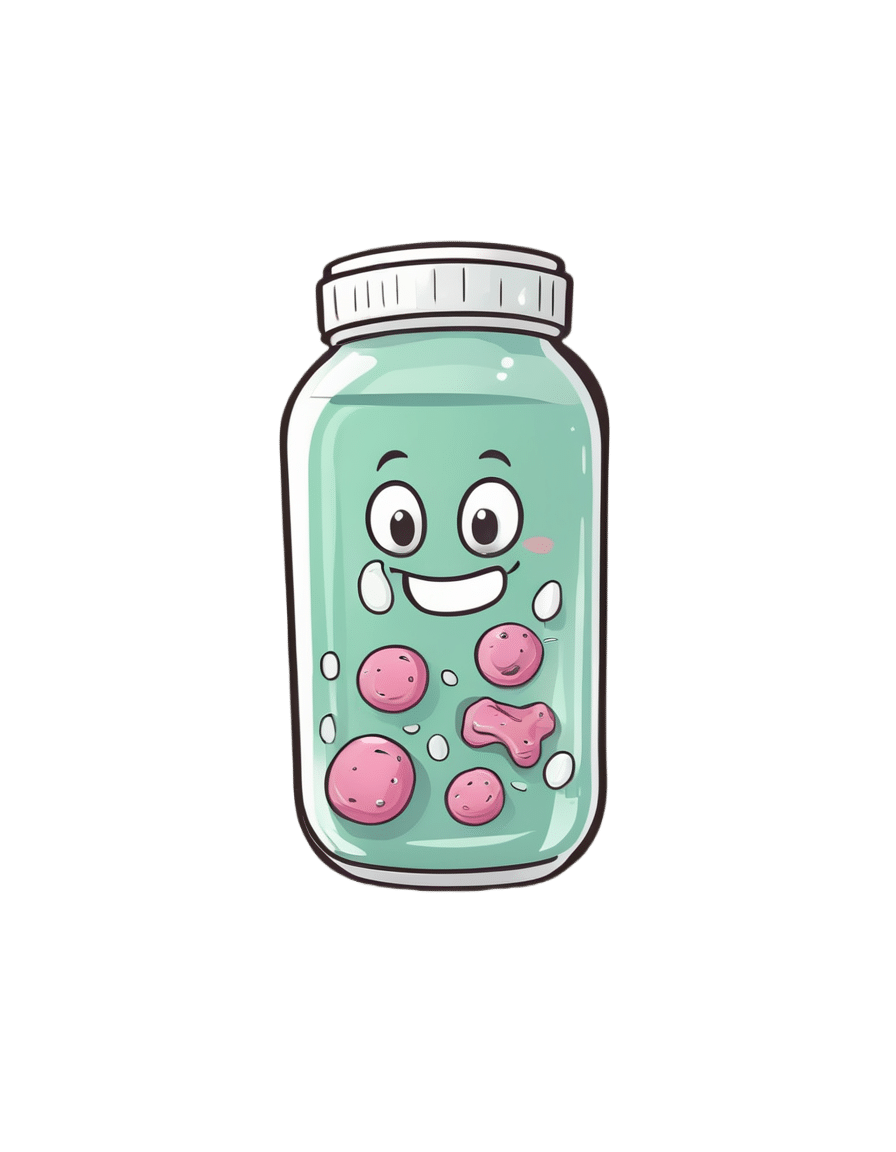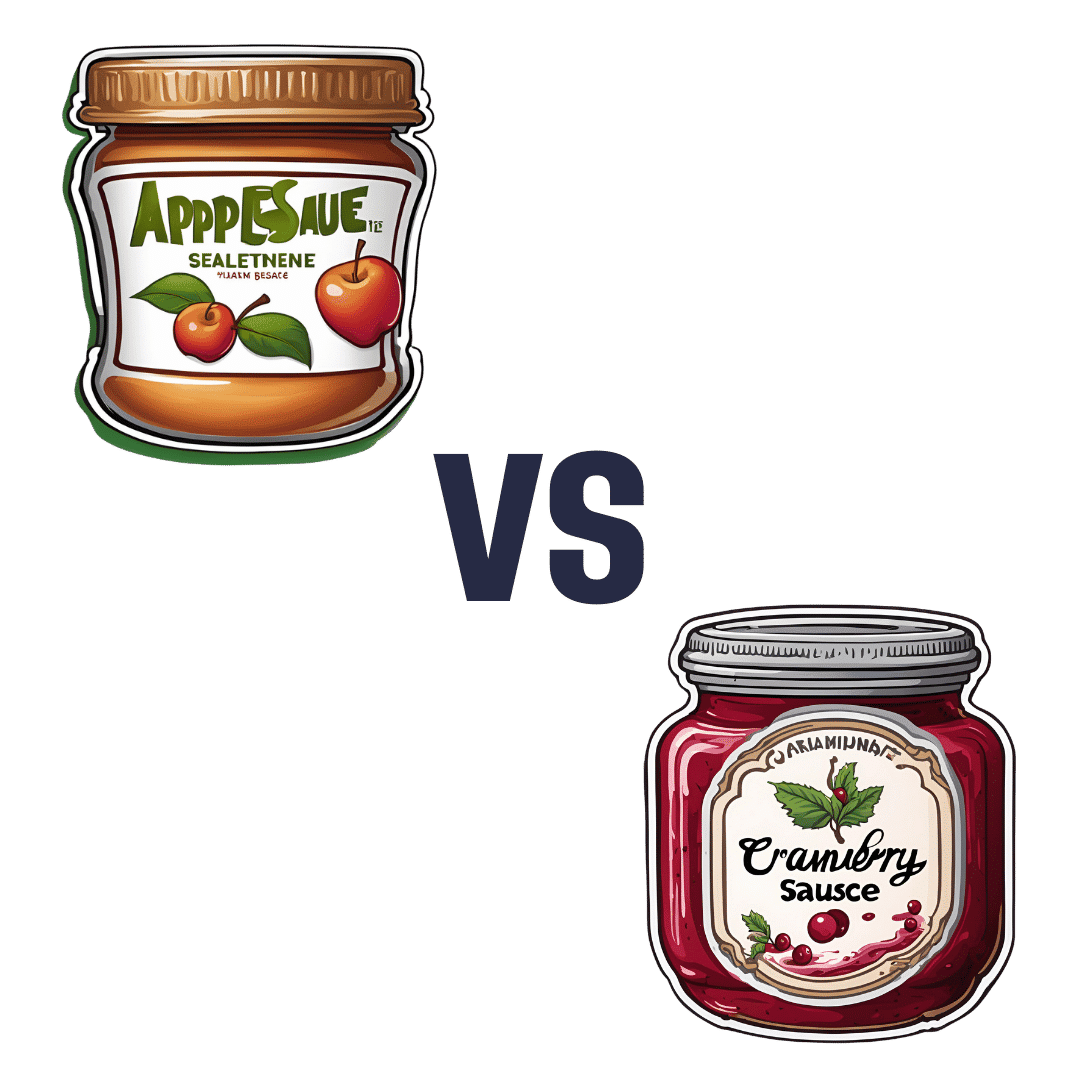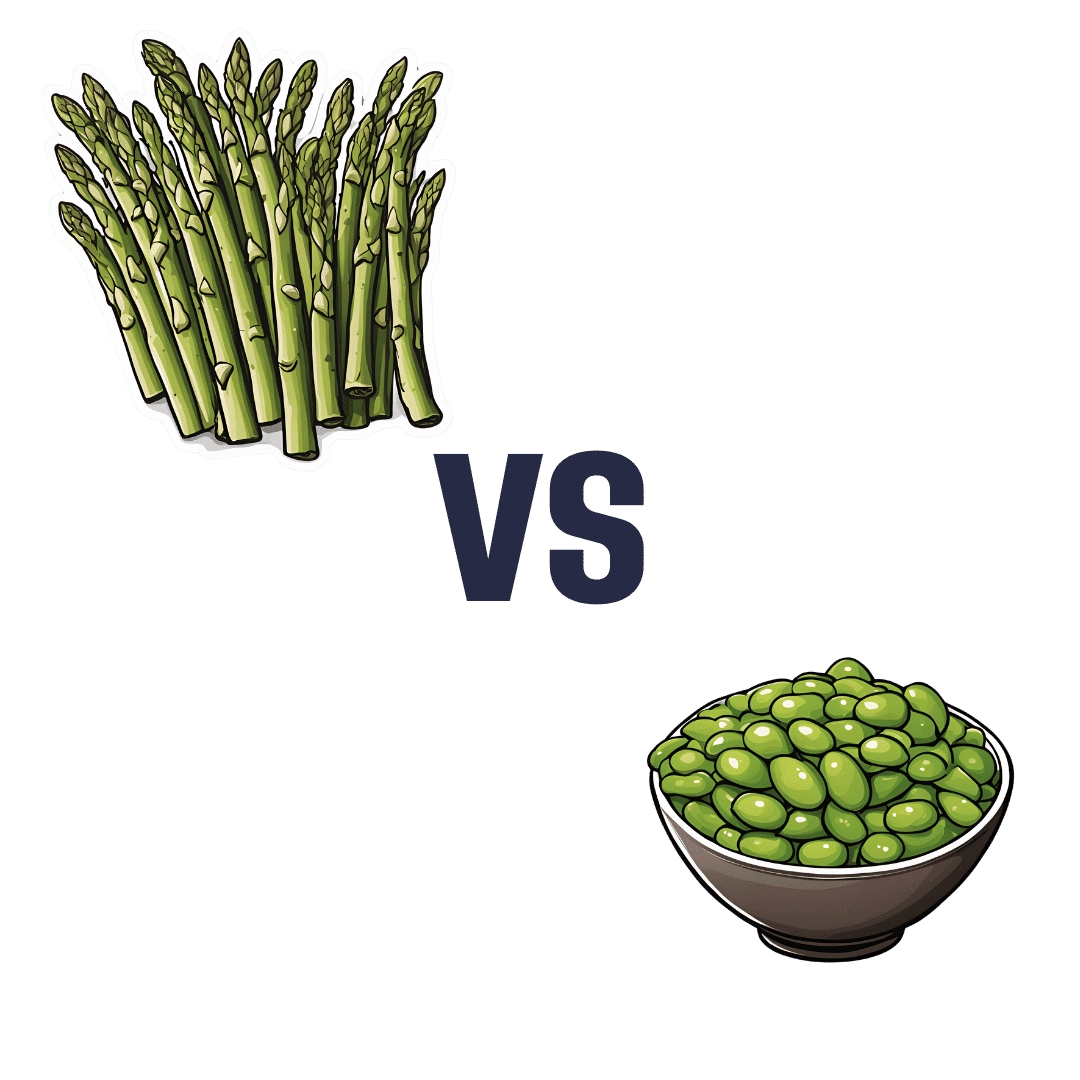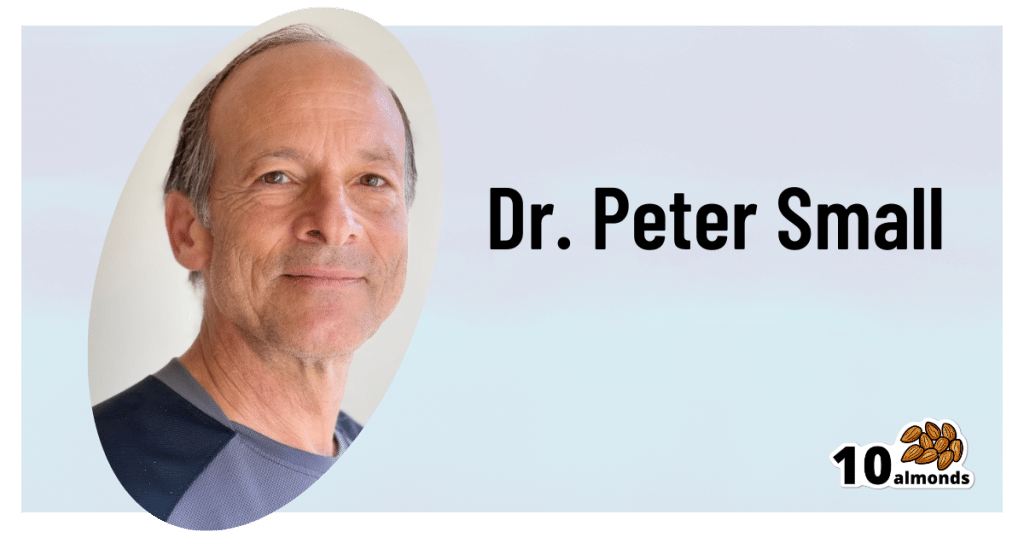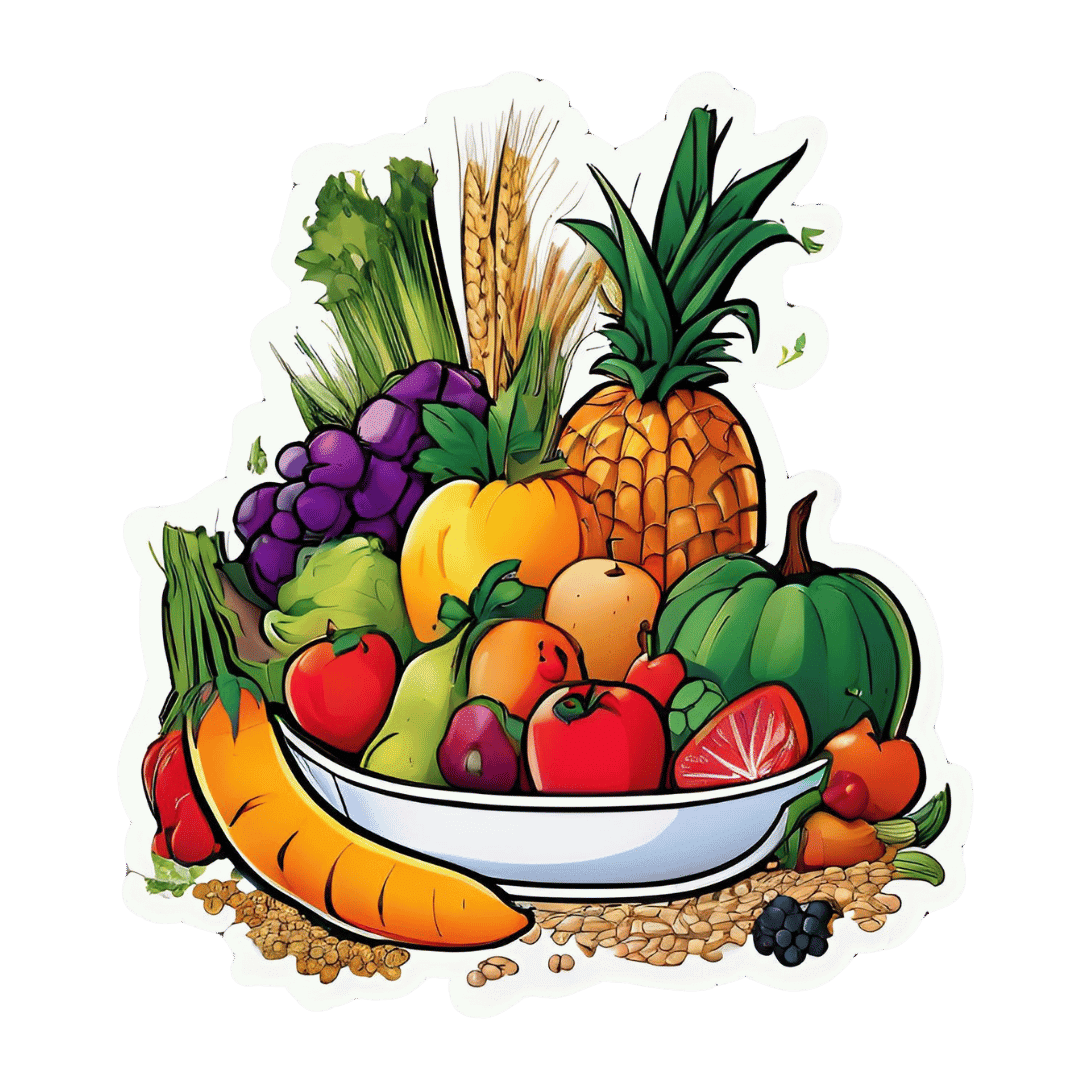
100,000 People, 30 Years, One Clear Winner vs Aging
10almonds is reader-supported. We may, at no cost to you, receive a portion of sales if you purchase a product through a link in this article.
Generally speaking, the scientific community most highly lauds the Mediterranean diet as being best for general health:
The Mediterranean Diet: What Is It Good For? ← what isn’t it good for?!
However, even this can be tweaked with specific health considerations in mind, for example:
Four Ways To Upgrade The Mediterranean Diet ← these tweaks offer adjusted versions of the Mediterranean diet, optimized for anti-inflammation, gut health, heart health, or brain health
And today we present to you some very good research into…
The best diet for aging well
Let’s be clear on terms first: by “aging well”, this means reaching age 70 without chronic diseases and maintaining good cognitive, physical, and mental health.
105,015 participants (of whom, 66% women, average age 53 at the start of the study) were followed for up to 30 years. Not in the stalkery way, but in the longitudinal study way. We say “up to”, because as with any sizeable longitudinal study, some died before the end of the study.
9,771 of them were deemed, at the end of the study, to have achieved “healthy aging”.
So, how did those participants achieve that, in terms of diet?
The dietary patterns that had the strongest positive impact were:
- AHEI (Alternative Healthy Eating Index): best for mental and physical function, overall healthy aging.
- PHDI (Planetary Health Diet Index): best for cognitive health and survival to age 70.
- DASH (Dietary Approaches to Stop Hypertension): strongest general impact.
- MIND (Mediterranean-DASH Intervention for Neurodegenerative Delay): best for brain health.
- rEDIH (Reversed Empirical Dietary Index for Hyperinsulinemia): most effective for chronic disease prevention.
In contrast:
- EIDP (Empirically Inflammatory Dietary Pattern): shocking nobody, performed least well in all areas
You are probably wondering what those dietary patterns actually consist of, so click here to see a chart of what’s included or excluded in each dietary pattern.
As you can see, the AHEI diet that was “best for mental and physical function, overall healthy aging” is essentially the Mediterranean diet with three small tweaks:
- no seafood, but long-chain omega-3 fatty acids include to compensate
- no sugar-sweetened beverages or fruit juices
- “no” sodium (in other words, minimal sodium, since almost everything contains trace amounts)
The PHDI diet, which was “best for cognitive health and survival to age 70” is essentially a whole-foods plant-based diet. Which in turn is very consistent with the Mediterranean, except that it excludes animal products, of which the Mediterranean diet uses small amounts.
You can read the paper in its entirety here:
Optimal dietary patterns for healthy aging
Want to know more?
A panel of 69 doctors and nutritionists examined the evidence for 38 diets (including Mediterranean, MIND, DASH, Vegan, Keto, Slimfast, WeightWatchers, Nutrisystem, and more) and scored them in 21 categories (e.g. best for general health, best for weight loss, best for heart, best against diabetes, etc):
Which Diet? Top Diets Ranked By Experts
Enjoy!
Don’t Forget…
Did you arrive here from our newsletter? Don’t forget to return to the email to continue learning!
Recommended
Learn to Age Gracefully
Join the 98k+ American women taking control of their health & aging with our 100% free (and fun!) daily emails:
-
Do Probiotics Work For Weight Loss?
10almonds is reader-supported. We may, at no cost to you, receive a portion of sales if you purchase a product through a link in this article.
It’s Q&A Day at 10almonds!
Have a question or a request? We love to hear from you!
In cases where we’ve already covered something, we might link to what we wrote before, but will always be happy to revisit any of our topics again in the future too—there’s always more to say!
As ever: if the question/request can be answered briefly, we’ll do it here in our Q&A Thursday edition. If not, we’ll make a main feature of it shortly afterwards!
So, no question/request too big or small
❝Can you talk about using probiotics for weight loss? Thanks❞
Great question! First, a quick catch-up:
How Much Difference Do Probiotic Supplements Make, Really?
Our above-linked article covers a number of important benefits of probiotic supplements, but we didn’t talk about weight loss at all. So let’s examine whether probiotics are useful for weight loss.
Up-front summary: the science is unclear
This 2021 systematic review found that they are indeed very effective:
❝The intake of probiotics or synbiotics could lead to significant weight reductions, either maintaining habitual lifestyle habits or in combination with energy restriction and/or increased physical activity for an average of 12 weeks.
Specific strains belonging to the genus Lactobacillus and Bifidobacterium were the most used and those that showed the best results in reducing body weight.
Both probiotics and synbiotics have the potential to help in weight loss in overweight and obese populations.❞
This slightly older (2015) systematic review and meta-analysis found the opposite:
❝Collectively, the RCTs examined in this meta-analysis indicated that probiotics have limited efficacy in terms of decreasing body weight and BMI and were not effective for weight loss.❞
Source: Probiotics for weight loss: a systematic review and meta-analysis
And in case that’s not balanced enough, this 2020 randomized controlled trial got mixed results:
❝Regression analysis performed to correlate abundance of species following supplementation with body composition parameters and biomarkers of obesity found an association between a decrease over time in blood glucose and an increase in Lactobacillus abundance, particularly in the synbiotic group.
However, the decrease over time in body mass, BMI, waist circumstance, and body fat mass was associated with a decrease in Bifidobacterium abundance.❞
Source: Effects of Synbiotic Supplement on Human Gut Microbiota, Body Composition and Weight Loss in Obesity
Summary
Probiotics may or may not work for weight loss.
In all likelihood, it depends on the blend of cultures contained in the supplement. It’s possible that Lactobacillus is more beneficial for weight loss than Bifidobacterium, which latter may actually reduce weight loss.
Or it might not, because that was just one study and correlation ≠ causation!
We’d love to give you a hard-and-fast answer, but if the data doesn’t support a hard-and-fast answer, we’re not going to lie to you.
What we can say for sure though is that probiotics come with very many health benefits, so whether or not weight loss is one of them, they’re a good thing to have for most people.
Some further articles that may interest you:
- How Much Difference Do Probiotic Supplements Make, Really? ← the aforementioned article
- Making Friends With Your Gut (You Can Thank Us Later) ← gut health 101
- Burn! How To Boost Your Metabolism ← these things can help change your metabolic base rate, which is highly relevant to weight loss
- How To Do HIIT (Without Wrecking Your Body) ←unlike most forms of exercise, which cause the body to slow the metabolism afterwards to compensate, high-intensity interval training results in an increased metabolic rate (so generally: fat-burning) for several hours after training.
Take care!
Share This Post
-
Steps vs Cardio | Which is Best for Fat Loss, Health, & Performance?
10almonds is reader-supported. We may, at no cost to you, receive a portion of sales if you purchase a product through a link in this article.
“Move more”, they say; but does it matter how quickly?
Use it or lose it
For general performance:
- More steps per day do offer slight aerobic benefits but do not significantly improve endurance.
- Higher-intensity cardio (ideally, HIIT) is essential for improving aerobic fitness.
- Training should match endurance goals (e.g. long-distance running vs team sports vs whatever it is that you care about for you).
For general health:
- Both cardio and step tracking reduce mortality risk and improve longevity.
- 2–3 hours of cardio per week provides most health benefits, with diminishing returns after 8 hours per week.
- 10,000+ steps/day is optimal, but 5,000+ steps/day still benefits health. And, not mentioned in this video, but really (per science) there seem to be diminishing returns after about 8,000 steps per day.
Fun fact: the reason it’s 10,000 steps per day that everyone talks about as the default goal, is just because the Japanese person who popularized it noted that the kanji for 10,000 looks a bit like a walking person: 万
For fat loss:
- Both step tracking and cardio do help.
- Step tracking better reflects total daily movement, while cardio burns calories in sessions—but if it’s not HIIT, there is likely to be a compensatory metabolic slump afterwards.
- High-intensity cardio increases fatigue, which may impact resistance training and diet adherence.
- Excessive endurance training can slightly inhibit muscle growth, but low-intensity steps have minimal interference.
So for fat loss, it’s best to get those steps in, and throw in a few HIIT sessions per week, with adequate recovery time between them.
For more on all of these things, enjoy:
Click Here If The Embedded Video Doesn’t Load Automatically!
Want to learn more?
You might also like to read:
How To Do HIIT (Without Wrecking Your Body)
Take care!
Share This Post
-
What Grief Does To Your Body (And How To Manage It)
10almonds is reader-supported. We may, at no cost to you, receive a portion of sales if you purchase a product through a link in this article.
What Grief Does To The Body (And How To Manage It)
In life, we will almost all lose loved ones and suffer bereavement. For most people, this starts with grandparents, eventually moves to parents, and then people our own generation; partners, siblings, close friends. And of course, sometimes and perhaps most devastatingly, we can lose people younger than ourselves.
For something that almost everyone suffers, there is often very little in the way of preparation given beforehand, and afterwards, a condolences card is nice but can’t do a lot for our mental health.
And with mental health, our physical health can go too, if we very understandably neglect it at such a time.
So, how to survive devastating loss, and come out the other side, hopefully thriving? It seems like a tall order indeed.
First, the foundations:
You’re probably familiar with the stages of grief. In their most commonly-presented form, they are:
- Denial
- Anger
- Bargaining
- Depression
- Acceptance
You’ve probably also heard/read that we won’t always go through them in order, and also that grief is deeply personal and proceeds on its own timescale.
It is generally considered healthy to go through them.
What do they look like?
Naturally this can vary a lot from person to person, but examples in the case of bereavement could be:
- Denial: “This surely has not really happened; I’ll carry on as though it hasn’t”
- Anger: “Why didn’t I do xyz differently while I had the chance?!”
- Bargaining: “I will do such-and-such in their honor, and this will be a way of expressing the love I wish I could give them in a way they could receive”
- Depression: “What is the point of me without them? The sooner I join them, the better.”
- Acceptance: “I was so lucky that we had the time together that we did, and enriched each other’s lives while we could”
We can speedrun these or we can get stuck on one for years. We can bounce back and forth. We can think we’re at acceptance, and then a previous stage will hit us like a tonne of bricks.
What if we don’t?
Assuming that our lost loved one was indeed a loved one (as opposed to someone we are merely societally expected to mourn), then failing to process that grief will tend to have a big impact on our life—and health. These health problems can include:
As you can see, three out of five of those can result in death. The other two aren’t great either. So why isn’t this taken more seriously as a matter of health?
Death is, ironically, considered something we “just have to live with”.
But how?
Coping strategies
You’ll note that most of the stages of grief are not enjoyable per se. For this reason, it’s common to try to avoid them—hence denial usually being first.
But, that is like not getting a lump checked out because you don’t want a cancer diagnosis. The emotional reasoning is understandable, but it’s ultimately self-destructive.
First, have a plan. If a death is foreseen, you can even work out this plan together.
But even if that time has now passed, it’s “better late than never” to make a plan for looking after yourself, e.g:
- How you will try to get enough sleep (tricky, but sincerely try)
- How you will remember to eat (and ideally, healthily)
- How you will still get exercise (a walk in the park is fine; see some greenery and get some sunlight)
- How you will avoid self-destructive urges (from indirect, e.g. drinking, to direct, e.g. suicidality)
- How you will keep up with the other things important in your life (work, friends, family)
- How you will actively work to process your grief (e.g. journaling, or perhaps grief counselling)
Some previous articles of ours that may help:
- How To Keep On Keeping On ← this is about looking after general health when motivation is low
- The Mental Health First-Aid You’ll Hopefully Never Need ← this is about managing depression
- How To Stay Alive (When You Really Don’t Want To) ← this is about managing suicidality
- Life After Death? (Your Life; A Loved One’s Death) ← this is about bereavement and romance
If it works, it works
If we are all unique, then any relationship between any two people is uniqueness squared. Little wonder, then, that our grief may be unique too. And it can be complicated further:
- Sometimes we had a complicated relationship with someone
- Sometimes the circumstances of their death were complicated
There is, for that matter, such a thing as “complicated grief”:
Read more: Complicated grief and prolonged grief disorder (Medical News Today)
We also previously reviewed a book on “ambiguous loss”, exploring grieving when we cannot grieve in the normal way because someone is gone and/but/maybe not gone.
For example, if someone is in a long-term coma from which they may never recover, or if they are missing-presumed-dead. Those kinds of situations are complicated too.
Unusual circumstances may call for unusual coping strategies, so how can we discern what is healthy and what isn’t?
The litmus test is: is it enabling you to continue going about your life in a way that allows you to fulfil your internal personal aspirations and external social responsibilities? If so, it’s probably healthy.
Look after yourself. And if you can, tell your loved ones you love them today.
Share This Post
Related Posts
-
Applesauce vs Cranberry Sauce – Which is Healthier?
10almonds is reader-supported. We may, at no cost to you, receive a portion of sales if you purchase a product through a link in this article.
Our Verdict
When comparing applesauce to cranberry sauce, we picked the applesauce.
Why?
It mostly comes down to the fact that apples are sweeter than cranberries:
In terms of macros, they are both equal on fiber (both languishing at a paltry 1.1g/100g), and/but cranberry sauce has 4x the carbs, of which, more than 3x the sugar. Simply, cranberry sauce recipes invariably have a lot of added sugar, while applesauce recipes don’t need that. So this is a huge relative win for applesauce (we say “relative” because it’s still not great, but cranberry sauce is far worse).
In the category of vitamins, applesauce has more of vitamins B1, B2, B5, B6, B9, and C, while cranberry sauce has more of vitamins E, K, and choline. A more moderate win for applesauce this time.
When it comes to minerals, applesauce has more calcium, copper, magnesium, phosphorus, and potassium, while cranberry sauce has more iron, manganese, and selenium. Another moderate win for applesauce.
Since we’ve discussed relative amounts rather than actual quantities, it’s worth noting that neither sauce is a good source of vitamins or minerals, and neither are close to just eating the actual fruits. Just, cranberry sauce is the relatively more barren of the two.
While cranberries famously have some UTI-fighting properties, you cannot usefully gain this benefit from a sauce that (with its very high sugar content and minimal fiber) actively feeds the very C. albicans you are likely trying to kill.
All in all, a pitiful show of nutritional inadequacy from these two products today, but one is relatively less bad than the other, and that’s the applesauce.
Want to learn more?
You might like to read:
From Apples to Bees, and High-Fructose Cs: Which Sugars Are Healthier, And Which Are Just The Same?
Enjoy!
Don’t Forget…
Did you arrive here from our newsletter? Don’t forget to return to the email to continue learning!
Learn to Age Gracefully
Join the 98k+ American women taking control of their health & aging with our 100% free (and fun!) daily emails:
-
Asparagus vs Edamame – Which is Healthier?
10almonds is reader-supported. We may, at no cost to you, receive a portion of sales if you purchase a product through a link in this article.
Our Verdict
When comparing asparagus to edamame, we picked the edamame.
Why?
Perhaps it’s a little unfair comparing a legume to a vegetable that’s not leguminous (given legumes’ high protein content), but these two vegetables often serve a similar culinary role, and there is more to nutrition than protein. That said…
In terms of macros, edamame has a lot more protein and fiber; it also has more carbs, but the ratio is such that edamame still has the lower glycemic index. Thus, the macros category is a win for edamame in all relevant aspects.
When it comes to vitamins, things are a little closer; asparagus has more of vitamins A, B3, and C, while edamame has more of vitamins B1, B2, B5, B6, and B9. All in all, a moderate win for edamame, unless we want to consider the much higher vitamin C content of asparagus as particularly more relevant.
In the category of minerals, asparagus boasts only more selenium (and more sodium, not that that’s a good thing for most people in industrialized countries), while edamame has more calcium, copper, iron, magnesium, manganese, phosphorus, potassium, and zinc. An easy win for edamame.
In short, enjoy both (unless you have a soy allergy, because edamame is young soy beans), but edamame is the more nutritionally dense by far.
Want to learn more?
You might like to read:
Take care!
Don’t Forget…
Did you arrive here from our newsletter? Don’t forget to return to the email to continue learning!
Learn to Age Gracefully
Join the 98k+ American women taking control of their health & aging with our 100% free (and fun!) daily emails:
-
The Cough Doctor
10almonds is reader-supported. We may, at no cost to you, receive a portion of sales if you purchase a product through a link in this article.
The Cough Doctor
This is Dr. Peter Small, who worked in epidemiology since the beginning of HIV epidemic. He became a pioneer in the field of molecular epidemiology. As such, his work was a guiding beacon for the public health response to the resurgence of tuberculosis. He’s travelled the world spending years in various institutions studying all manner of respiratory illnesses…. These have ranged from tuberculosis to pneumonia to lung cancer and (back to epidemiology) Covid-19.
He’s now the Chief Medical Officer at…
Hyfe
Hyfe, a medical AI company, was founded in 2020. Its objective: to build acoustic tools for respiratory diagnostics and monitoring.
In other words: it records coughs and collects data about coughing.
❝It’s ironic how much people focus on counting steps while ignoring cough, which is far more consequential. Hyfe is a science-driven company with the technology to make cough count. Particularly now, with increased awareness of cough and the rapid growth of digital health driven by Covid-19, this technology can improve the lives of patients, the care provided by doctors, and the efficiency of health systems.❞
~ Dr. Peter Small, CMO, Hyfe
How does it do it?
Hyfe’s AI monitors the number of times a person coughs and the sound of the cough through any smartphone or other smart device.
This data collected over time provides increasingly more reliable information than a single visit to the doctor! By constantly listening and analyzing, it can detect patterns that might otherwise go unnoticed.
How big is this “big data” effort?
Hyfe maintains the largest cough dataset in the world. This means it can compare the sound of a patient’s cough with more than 400 million cough-like sounds from 83 countries across all continents.
The human brain doesn’t handle big numbers well. So, just to illustrate: if the average cough is 1 second long, that means it’d take more than 12 years to listen to them all.
Hyfe, meanwhile, can:
- listen to many things simultaneously
- index them all against user and location,
- use its ever-growing neural net to detect and illustrate patterns.
It’s so attentive, that it can learn to distinguish between different people’s coughs in the same household.
❝Companies like Google Health see even basic information such as getting an accurate count of the number of times a person coughs a day as a useful resource, and part of a larger need to collect and chronicle more health information to refine the way doctors diagnose disease and manage treatments in the future.❞
What are the public health implications?
The most obvious application is to note when there’s a spike in coughing, and see how such spikes grow and spread (if they do), to inform of contagion risks.
Another is to cross-reference it with data about local environmental allergens. Knowing how things like pollution and even pollen affect individuals differently could be helpful in identifying (and managing) chronic conditions like asthma.
What are the private health implications?
❝It’s going to transform the whole clinical approach for this common and chronic symptom. Patients will come in, have the data on how much they are coughing, and the physician can suggest a treatment based on that information to see if it makes the coughs better❞
~ Dr. Peter Small
Dr. Small’s colleague Dr. Cai, speaking for Google Health on this project, sees even more utility for diagnostics:
❝When I was in medical school, never ever did they teach us that we could listen to somebody cough and identify whether that person has TB (tuberculosis), COPD, or a tumor. But I keep seeing more and more studies of people coughing into a microphone, and an algorithm can detect whether somebody has TB with 95% specificity and sensitivity, or if someone has pneumonia or an exacerbation of COPD❞
~ Dr. Lawrence Cai
And the privacy implications?
Perhaps you don’t quite fancy the idea of not being able to cough without Google knowing about it. Hyfe’s software is currently opt-in, but…
If you cough near someone else’s Hyfe app, their app will recognize you’re not the app’s user, and start building a profile for you. Of course, that won’t be linked to your name, email address, or other IDs, as it would if you were the app’s user.
Hyfe will ask to connect to your social media, to collect more information about you and your friends.
Whether you’d like to try this or perhaps you’re just curious to learn more about this fascinating project, you can check out:
Don’t Forget…
Did you arrive here from our newsletter? Don’t forget to return to the email to continue learning!
Learn to Age Gracefully
Join the 98k+ American women taking control of their health & aging with our 100% free (and fun!) daily emails:


